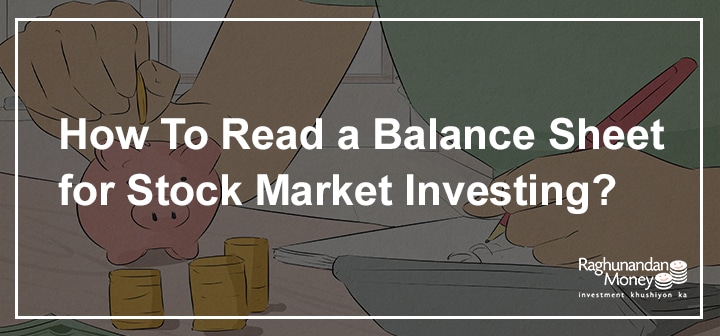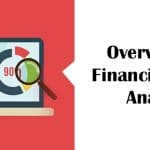The prime objective of why people invest in the stock market is to make profits and increase their earnings. Every investor wants to put his money in sectors or companies that are booming and would probably offer high returns.
The challenge however lies in choosing the right company or sector for investing in. These decisions are made by referring to the financial statements of a company and by studying their growth pattern through various financial statements. Statements like Balance Sheet, Cashflow Statements, P&L accounts, etc. reflect a company’s position in terms of profitability and liquidity.
These statements give an insight about where the company has invested its capital, how much reserve has been created by now, and how much money does the firm needs to run its business daily.
What is a Balance Sheet?
A Balance Sheet is a financial document that tells a company’s worth. The balance sheet lists out information on the company’s assets, liabilities, and owners’ equity. Mostly, balance sheets are prepared quarterly.
A balance sheet is reviewed by business leaders, shareholders, and employees and gives them insights into the company’s financial health. Based on the information provided in the balance sheet, they change their strategies for the company.
Balance Sheet Categories To Consider While Investing in Stock Market
Here are five balance sheet categories that considered while investing:
Assets
Assets are divided into two types i.e. Current assets and Non-current assets. Let’s discuss each one by one-
Current Assets: Currents assets are such items that can be converted into cash easily. Some of the current assets are accounts receivables, Inventory, and Cash.
Non-current Assets: These are the assets that cannot be converted into cash in short term. Some of the noncurrent assets are land, patent, trademarks, goodwill, intellectual property, etc.
Liabilities
Liability is something that a company owes. Liabilities are financial and legal obligations to pay a particular amount of funds to a debtor. This is the reason liabilities are put on the negative side of a balance sheet. Just like assets, liabilities are also divided into current and noncurrent liabilities.
Current Liabilities: Current liabilities are those which should be paid to the debtor within a year. Some of the current liabilities are payroll expenses, rent payments, utility payments, debt financing, accounts payable, etc.
Noncurrent Liabilities: These liabilities are those which are not due for payment within a year. Some of the noncurrent liabilities are leases, loans, bonds payable, provisions for pensions, deferred tax liabilities, etc.
Owner’s Equity
Owner’s equity or shareholder’s equity is something that belongs to owners of business after liabilities. In simple words, whatever is left after deducting liabilities from assets is owner’s equity. There are two elements of owner’s equity first is the money which owner put into the business and the second is earnings from the business.
Investments
Investments are areas and instruments where a company invests its idle money intending to get higher returns. These investments can be either for the short term like for a year or for the long term which is for 3 to 5 years or beyond. A firm’s investment indicates its inclination in different sectors and is a key component for judging whether the firm is planning to grow or to diversify its business.
Working Capital
Working capital is the capital required by a firm for carrying out its day-to-day operations. It is the net current assets of a company after deducting the net current liabilities that a firm needs to pay. A firm’s liquidity is related to the value of the net current assets held by it. The firm’s working capital should be enough to suffice its operating expenses or else the firm will be required to undergo liquidation. Thus, a firm’s working capital should be enough to cover the firm’s expenses or more than what the firm will require to be on the safe side.
Final Note
It is important for a stock market investor to keenly examine all the above components of the balance sheet before investing in any particular company. Some cautious investors might add other balance sheet components also for analysis to have a better and fair understanding which is appropriate. Though the stock market investments are regulated by SEBI one should always seek the help of an experienced broker for online stock trading.
About Author

Stock Trading Now trade in ₹9 Per Order or ₹ 999 Per Month Plans.
Future & Options Access F&O contracts with advanced tools for hedging and speculation.
Currency Trading Trade in major currency pairs and manage forex exposure efficiently.
Commodity Trading Diversify Trading with MCX & NCDEX by Trading in Gold, Silver, Base Metals, Energy, and Agri Products.
Margin Trading Funding Boost your buying power with upto 5X, Buy now Pay Later
Algo Trading Back test, Paper Trade your logic & Automate your strategies with low-latency APIs.
Trading View Leverage Trading View charts and indicators integrated into your trading platform.
Advanced Options Trading Execute multi-leg option strategies with precision and insights.
Stock Lending & Borrowing Earn passive income by lending stocks securely through SLB.
Foreign Portfolio Investment Enable NRIs and FPIs to invest in Indian markets with ease and compliance.
IPO Invest in upcoming IPOs online with real-time tracking and instant allotment updates.
Direct Mutual Funds 0% Commissions by investing in more than +3500 Direct Mutual Fund Scheme.
Corporate FDRs Earn fixed returns with low-risk investments in high-rated corporate fixed deposits.
Stocks SIPs Build long-term wealth with systematic investment plans in top-performing stocks.
Bonds & NCDs Access secure, fixed-income investments through government and corporate bond offerings.
Depository Services Safely hold and manage your securities with seamless Demat and DP services with CDSL.
Journey Tracing our growth and milestones over time.
Mission & Vision Guided by purpose, driven by long-term vision.
Why RMoney Platform Smart, reliable platform for all investors' needs.
Management Experienced leadership driving strategic financial excellence.
Credentials Certified expertise with trusted industry recognition.
Press Release Latest company news, updates, and announcements.
Testimonials Real client stories sharing their success journeys.
7 Reasons to Invest Top benefits that make investing with us smart.
SEBI Registered Research Trusted insights backed by SEBI-compliant research.
Our Technology Advanced tools enabling efficient online trading.
Calculators Access a suite of smart tools to plan trades, margins, and returns effectively.
Margin Calculator Instantly check margin requirements for intraday and delivery trades.
MTF Calculator Calculate MTF funding cost upfront to ensure full transparency before placing a trade.
Brokerage Calculator Know your exact brokerage charges before placing any trade.
Market Place Explore curated investment products and trading tools in one convenient hub.
RMoney Gyan Enhance your market knowledge with expert blogs, videos, and tutorials.
Performance Tracker Track our research performance with full transparency using our performance tracker.
Feedback Share your suggestions or concerns to help us improve your experience.
Downloads Access important forms, software, and documents in one place.
Locate Us Find the nearest RMoney branch or service center quickly.
Escalation Matrix Resolve issues faster with our structured support escalation process.
Back Office Log in to view trade reports, ledger, and portfolio statements anytime.
Account Modification Update personal or bank details linked to your trading account.
Fund Transfer Transfer funds instantly online with quick limit updation to your trading account.
Bank Details View our registered bank account details for seamless transactions by NEFT, RTGS or IMPS.
How to Apply IPO Step-by-step guide to apply for IPOs using your trading account.
RMoney Quick Mobile App Trade on-the-go with our all-in-one mobile trading app.
RMoney Quick login Quickly access your trading account through the RMoney Quick web-based trading.
RMoney Rocket Web Version Experience powerful web-based trading with advanced tools for algo traders.
RMoney Rocket Mobile Version Trade anytime, anywhere with our feature-rich mobile trading platform.




















